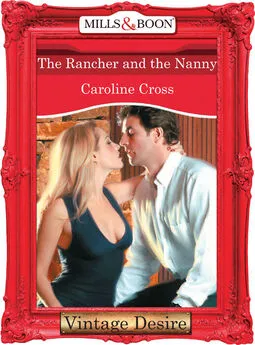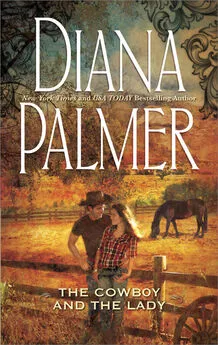John Creasey - The Toff and The Lady
- Название:The Toff and The Lady
- Автор:
- Жанр:
- Издательство:неизвестно
- Год:неизвестен
- ISBN:нет данных
- Рейтинг:
- Избранное:Добавить в избранное
-
Отзывы:
-
Ваша оценка:
John Creasey - The Toff and The Lady краткое содержание
The Toff and The Lady - читать онлайн бесплатно полную версию (весь текст целиком)
Интервал:
Закладка:
Beneath his good mood there was an underlying note of uneasiness. Even if the case resolved itself fairly well, and Marcus Shayle had poisoned the lady of lost memory, much would remain unsolved, and there would be danger to both the unknown woman and to Phyllis Armitage. It was disquieting to think that a man had been waiting in the neighbouring flatlet, doubtless with the intention of murdering Phyllis. The man had probably postponed action because he knew that Phyllis had a visitor, but then been forced into the open. From these conclusions it was reasonable to suppose that Marcus Shayle and others were most anxious that Phyllis should not disclose the story of her actions that day.
Jolly had not yet returned to Gresham Terrace. It was then nearly half-past seven, and Rollison telephoned Barrington House, asking for Hilda. A man with a stilted voice regretted that Madam was out. So, it proved, were David Barrington-Ley and Gwendoline. He had been wrong to assume that Hilda would be sitting at home waiting for him.
He took out the slip on which he had written down the name and address of the firm of accountants which Shayle had visited. Messrs. Pomeroy, Ward & Pomeroy, of 88g The Strand, were in the telephone directory, and he made a note of their number. Then he called the house of Sir Lancelot Anstey. He was remotely related to Anstey by marriage; Anstey managed all his legal affairs and, for a man of nearly seventy, viewed his activities with a remarkably benevolent eye.
When Anstey came to the telephone, he said:
“More trouble, Rolly?”
“Certainly not,” said Rollison. “A trifling matter in which the advice of the most distinguished member of the legal profession would be welcome.”
Anstey chuckled.
“You certainly want me to do what I shouldn’t!”
“If that were so I should come and see you with a bottle of fine old brandy,” said Rollison. “The question before the oracle is—if you were not in existence, would anyone recommend me to take my business to Pomeroy, Ward & Pomeroy, of the Strand?”
“No,” said Anstey, promptly. “Not unless they had a good reason to dislike you.”
“It’s as bad as that, is it?”
“Now don’t misunderstand me, Rolly,” said the older man. “I know nothing against the firm, except that it sometimes handles cases which are rather unsavoury. It hasn’t a large connection and it isn’t very well-established. There is a companion firm of accountants—virtually the same people of course.”
“Is it a new firm?”
“It was started about ten years ago,” said Anstey. “It specializes in raising loans and mortgages and arranges advances on testamentary expectations.”
“Ah,” said Rollison. “Moneylenders.”
“What makes you inquire?” said Anstey.
“You’ve probably heard of the case of the lady in high society who lost her memory,” said Rollison.
“Do Pomeroys claim to know her?”
“They haven’t done, yet,” said Rollison. “Many thanks for the information.”
“I suppose it’s no use trying to make you explain,” said Anstey.
Although he had been very forthcoming for a lawyer, Anstey could probably have said much more. Rollison pondered over that and the record of the dual firms of Messrs. Pomeroy, Ward & Pomeroy, until the telephone awoke him from his reverie.
“Hallo, Jolly!” he said a moment later. “News?”
“Of a kind, sir,” said Jolly. “I am speaking from a telephone kiosk in the Strand. After making several brief calls at shops, and two telephone calls from public call-boxes, the young man returned to the office and is still there. I am now watching the entrance, sir, and it occurred to me that you would probably like to know at once what was happening.”
“Yes,” said Rollison. “I’ll come over at once. Follow him if he leaves again.”
“Very good, sir,” said Jolly.
Rollison picked up his hat and gloves and hurried downstairs. It was five minutes before he got a taxi, but the driver made good speed, and a quarter of an hour after he had received the message the taxi pulled up outside 80 The Strand. On the other side of the road, just emerging from an amusement hall from which came strident music, was Jolly. He showed himself for a moment and then disappeared.
Rollison paid the cabby and then went to 88g. On the ground floor there was a shop, and at the side door a board with a list of those companies which had offices above. Pomeroy, Ward & Pomeroy occupied two name-plates and the whole of the second floor. He went up the stone stairs, unable to keep his progress quiet and so walking boldly.
There was only one door on the second floor landing, marked with the two firms’ name and the word: Inquiries. A smaller hand-written notice invited everyone to “ Please Walk In. ”
Rollison did so.
He found himself in an empty outer office of sumptuous appearance. Here was nothing of the traditional fustiness of an accountant’s or solicitor’s office, but chromium and light oak furniture, a thick pile carpet, and a polished counter with a bell and the words: “ Please Ring If Office Empty: Comfortable armchairs with leather seats were lined along one wall, and by the side of each was an ash-stand with a magazine rack. Rollison glanced at a dozen magazines and found they were current issues.
On the other side of the counter were three doors, one leading right, and marked: “Mr. J. E. Pomeroy,” the others blank. From J. E. Pomeroy’s office there came a murmur of conversation and, as Rollison lifted the flap in the counter and stepped through to the forbidden side, the clink of glasses. A man laughed, another spoke in a low-pitched voice which Rollison heard with difficulty, and then the other man laughed more loudly. It was a throaty sound.
“Enjoying themselves,” murmured Rollison, and reached the door.
Suddenly the office was filled with the jangle of swing music which even a swing fan might have thought discordant. It came from Mr. Pomeroy’s office; the men inside were indeed about to enjoy themselves. The music was so loud that it was unlikely that they were carrying on a conversation. Rollison hesitated. If he opened the door and walked in, they might, with some justification, take a very high hand. He did not want to give them reasonable grounds for doing so, and decided to return to the right side of the counter and ring the bell. As he turned, he saw a door opposite open.
He stood still.
“Good-evening,” said Marcus Shayle.
He stood by the open door, smiling broadly, as if he were taking great pleasure in discomfiting Rollison, who stared at him without expression. Marcus Shayle was a man with most pleasant features. He had bright and rather merry eyes, his full lips smiled as if he were really amused, and there was something boyish about his round face and curly hair. He was well-dressed in flannels, and looked as flourishing as the outer office of the firm.
“Good-evening,” said Rollison.
“Can I help you?” asked Shayle.
“I’m not sure,” said Rollison.
“Or would you prefer to help yourself?” asked Shayle, with a broad beam. “I wonder if you will do something for me?”
It was clear that when Rollison had stepped through the counter he had trodden on a warning bell or a light—and that the radio had been switched on to deaden the sound of movement in the other room. The laughter was explained; it had been to deceive anyone who stood outside. In those few seconds his respect for Marcus Shayle and the firm rose considerably.
“Will you do something for me?” insisted Shayle.
“What?” asked Rollison, giving the impression that he was very much alarmed.
“Lift the telephone and dial Whitehall 1212,” said Shayle.
Rollison murmured: “The number sounds familiar.”
“It’s very well known,” said Shayle. “You see, when a stranger forces open the door of this office and shows other indications of being here with a dishonest purpose, we always call the police.”
“Very sound policy,” said Rollison. “The door was open.”
“Oh, I assure you that it was most securely locked.” Shayle stepped across to the door and put down the catch; as it clicked home, he laughed. “You see? Only an extremely clever cracksman could pick that lock, and the police will doubtless be able to identify you. You will oblige me, won’t you?”
“I wonder if I should,” murmured Rollison.
“After all. if you were to try to get away or struggle or fight,” said Shayle, still in the best of good spirits, “it would add violence to the crime.”
“You could ring them yourself,” said Rollison.
“But that would spoil my enjoyment,” said Shayle. “However, if you insist”
“Oh, I’d hate to be disobliging,” said Rollison, and he turned and lifted the receiver, without batting an eye. Shayle looked startled. Deliberately Rollison dialled WHI 1212, with Shayle watching him closely so that he could be in no doubt about the number, and he heard the operator at Scotland Yard.
“Give me Superintendent Grice, please,” he said.
The smile had faded completely from Shayle’s face. He took a step forward and much of the pleasantness had gone, like his smile. In fact he looked disagreeably surprised and uncertain.
“I didn’t tell you to ask for anyone,” he said.
“I know you would like to fly high,” murmured Rollison. “ Hallo? . . . Oh, he’s not in . . . . No, I won’t leave a message, unless—hold on a moment, will you?” He turned to Shayle, and asked, politely: “Would you like to leave a message?”
“No,” said Shayle, curtly.
“No, no message,” said Rollison, and replaced the receiver. He took out his cigarette case and proffered it. Shayle waved it aside. He lit a cigarette, replaced the case, and smiled. “Checkmate,” he said. “Or your move.”
“Who the devil are you?” demanded Shayle.
“I thought I was an expert cracksman,” said Rollison. “Where do we go from here?”
“What do you want?” demanded Shayle.
“Freedom from fear for the fair sex,” murmured Rollison, and saw that the thrust reached home. “Or—who put the poison in the Neuro-Phosphates? My dear chap, aren’t you well?”
“What the devil are you talking about?” demanded Shayle. “You have the nerve to break into this office and to start uttering threats”
“No threats meant, only taken,” smiled Rollison. “We aren’t getting very far, are we? May I see who’s with you?”
“Get out of here!” snapped Shayle.
“After all.” said Rollison, reasoningly, Tm only looking for a pair of painter’s overalls with a large gun-pocket, and that’s the kind of thing I might find anywhere.”
“I haven’t the faintest idea what you mean!”
“Then let’s make ourselves comfortable and I’ll tell you a story,” said Rollison. He stepped to the door of Pomeroy’s room and, before Shayle could stop him, thrust it open. It struck an obstruction on the other side and swung back against Rollison’s hand, but he was ready for it and thrust it open again. Into the middle of the office a man was staggering back —a little round podge of a man who held his plump right hand to his face and whose eyes were watering freely. He wore a remarkable suit of red, yellow and white check, and looked a very sporting gentleman.
“Mr. Pomeroy, I presume,” murmured Rollison.
Mr. Pomeroy, if it were he, was bereft of words. He took a colourful handkerchief from his pocket and dabbed gingerly at his nose, while Shayle strode forward and clapped a hand on Rollison’s shoulder, with the manifest intention of swinging him round and throwing him out of the office. Rollison steeled himself so that Shayle could not move him, and looked into the eyes which were no longer merry, but blazing with anger.
Читать дальшеИнтервал:
Закладка:










